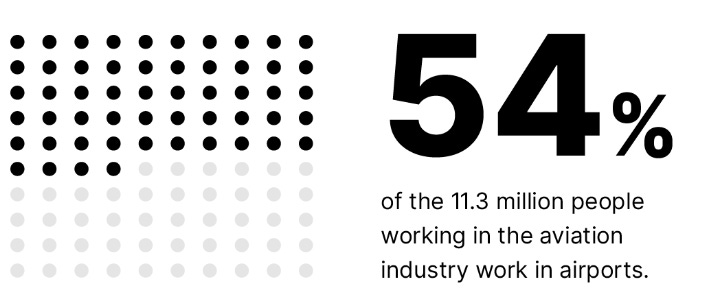You just have to remember that contrarians are usually wrong — Jeff Bezos
Being ‘right’ doesn’t lead to superior performance if the consensus forecast is also right — Bill Gurley
AirLegit sponsors this newsletter
AirLegit solves a major pain point for airline passengers: getting stuck during travel disruptions. Our customers include airlines, online or offline travel agencies, TMCs and travel technology providers.
Streamline air travel with Automated Check-in to deliver a host of valuable features and convenience for your passengers. With traveler preferences for seat assignment, frequent flyer number, TSA Pre-check, and passport/identity documents, Automated Check-in improves the travel experience with boarding pass delivery to your passenger via email or within your mobile app. Available globally. Reach out for more information to vladimir@airlegit.com.
0. The most clicked link in the previous newsletter
The most clicked link in Travel Tech Essentialist #118 was the Wall Street Journal article on the consumes’ allure of hidden fees.
1. Chasing trends
Sam Haas, a Solutions Engineer at RideCo, frequently collaborates with aspiring entrepreneurs. He wrote on the success of entrepreneurs who establish businesses based on founder-market fit compared to those who pursue trendy business ideas, and points out the reasons why so many fall victim to chasing a trend and why businesses that are built on trends do not tend to last. Read +
A trending market very quickly becomes commoditized and leaves nothing to compete on except price and questionable claims to quality.
2. You need to be non-consensus (and right)
Andy Rachleff is a Silicon Valley investor, cofounder of Wealthfront, and faculty at the Stanford Graduate School of Business. He says that businesses can be described with a two-by-two matrix. On one dimension, you can either be right or wrong. On the other, you can be consensus or non-consensus. It’s clear that you don’t make money if you’re wrong, but Andy points out that most people don’t realize you don’t make money either if you are right and consensus because the opportunity is too obvious and all the returns get arbitraged away. The only way to build legendary businesses is to be right and non-consensus.
3. Seven rejections
Being non-consensus before knowing if you’re right or wrong often leads to being rejected. The quote by Bezos at the beginning of this newsletter is a fact, and it is the reason why most people follow the crowd.
Brian Chesky tells the story about how, in June 2008, his friend Michael Seibel introduced Brian and his Airbnb cofounders to 7 prominent Silicon Valley investors. The Airbnb founders attempted to raise $150,000 at a $1.5M valuation. That meant for $150,000 someone could have bought 10% of Airbnb. Below are five rejections. The other two did not even bother to reply.
4. Assume you’re below average
- 96% of cancer patients claim to be in better health than the average cancer patient.
- 94% of professors say they are better than average teachers.
- 90% of students think they are more intelligent than the average student.
- 93% of drivers say they are safer than average drivers.
When Derek Sivers (founder of CD Baby, sold for $22 million in 2008) learned of these statistics, he decided to assume he was below average as a strategy to improve.
I decided to gamble on the opposite. Now I just assume I’m below average. It serves me well. I listen more. I ask a lot of questions. I’ve stopped thinking others are stupid. I assume most people are smarter than me. To assume you’re below average is to admit you’re still learning. You focus on what you need to improve, not your past accomplishments. Many people are so worried about looking good that they never do anything great. Many people are so worried about doing something great that they never do anything at all. You destroy that paralysis when you think of yourself as just a student, and your current actions as just practice.
Startup founders are not immune to the cognitive bias of illusory superiority. Despite the fact that 7.5 out of 10 for venture capital-backed startups fail (source), over 80% of entrepreneurs believe their likelihood of success to be 70% or greater, with nearly a third putting their chances of success at 100%. Confidence is crucial to embark on an endeavour with low chances of survival, but self-awareness and a learning mind frame are also important ingredients to improving the odds.
5. A VC perspective on the state of Insurtech
Adam Chadroff from Equal Ventures VC shared a deck with his perspective on the insurtech sector. Some of the the key takeaways you’ll find inside:
We witnessed a classic hype cycle: Insurtech investments surged over the past decade from a very low base, but then multiples collapsed and liquidity dried up.
Insurtechs applied a disruptive lens to a space characterized by risk-averse, well-capitalized incumbents. The market anticipated rapid digitization, scalable DTC economics, and a clear path to underwriting advantages.
It turns out that it’s not so easy to disrupt legacy insurers. Insurtechs often delivered much better UX, and enabled new/more transparent channels--but great product alone can't fix unit economics. Paying up to rapidly acquire users can lead to an unprofitable book.
If disruption is out of favor, digital leverage is not. Tech companies disrupting insurance racked up losses but tech-enabled insurance businesses that align stakeholders can be high-margin, scalable, and very sticky and still have a long runway to create value in the $1T+ insurance sector.
Massive opportunities remain forthose still focused on insurance.
6. Europe's travel and accommodation sector in 44 charts
This 57-page report is a collaboration between Statista and Booking.com, seeking to understand the European travel industry – what drives it, where it has been, and where it is headed. With visually appealing infographics and concise text, the book covers the European travel and tourism megatrends, dynamics, digitalization, and the evolving consumer preferences that are shaping the industry.
7. Evolution of airports in the next 30 years
The global commercial aviation fleet is expected to expand by 33% to more than 36,000 aircraft by 2033, while passenger air traffic is predicted to grow by 5.8% annually between now and 2040. By 2040, more than 19 billion passengers will pass through world airports each year. This Olyver Wyman report explores:
The megatrends that will shape the airports of 2030, 2040, and 2050
What airports will look like in 2030, 2040, and 2050
The role of airport leaders, industry, and governments
8. Navigating the world of travel subscription
We are all somewhat familiar with the concept of subscriptions, but the term has often been misused in the travel industry. Caravelo published this 9-page document to give clarity to what travel subscriptions are, offering core concepts, examples, main players and vocabulary to differentiate the various types of travel subscriptions.
9. Have a good flight

10. Funding and Partnerships
HyperGuest, a technology platform for the hospitality industry, raised $23 Million in a round led by Lightspeed Venture Partners and included Viola Ventures, and Thayer Ventures.
Topkey raised $5.1 million in a seed round. Topkey aims to offer an expense management, billing and payment platform initially focused on vacation rental property managers.
HiJiffy, an AI-powered chabot service for hotels, has raised €3.8 million in funding.
NeoKe secured €1.3 million led by Dreamcraft Ventures with participation from ff Venture Capital, Gharage and Plug & Play.
Amazon is partnering with Priceline to offer discounts during Tuesday's Prime Day (July 11), the first time an OTA has participated in the shopping event. Read +.
Pattern Insurance will offer embedded travel protection via Amadeus’s iHotelier Booking Engine to offer a range of travel protection options during the booking process, including coverage for weather, delays, cancellations, and medical expenses. Read +
Travel Investor Network
Travel Investor Network is a private platform launched by Travel Tech Essentialist for investors and innovators to discover innovative travel startups. In the first nine cohorts (October-July), I’ve recommended 94 startups from 27 countries.
→ If you are a startup looking to raise a round (from pre-seed to Series D), maybe I can help (for free). Please start by completing this form.
→ If you are an investor interested in joining the Travel Investor Network, please complete this form.
Talent Network
The Travel Tech Essentialist talent network has companies across the travel tech landscape that are currently hiring. If you’re a candidate looking for new opportunities, apply here to join at no cost to you and get introduced to hiring companies.
Featured job openings
Viatu: Head of Sales (Europe, Africa, Remote) | €45k-€60k
Expedia Group: Sales Enablement Specialist (Madrid, Spain)
Hopper: Senior Product Manager, Corporate Travel (USA, Remote)
Booking.com: Marketing Specialist - Transport (Manchester UK)
View all jobs here
If you like Travel Tech Essentialist, please consider sharing it with your friends or colleagues and hitting the heart button up top (it helps more readers discover it):
If you’re not yet subscribed, you can do so here:
Thanks for trusting me with your inbox,
Mauricio









